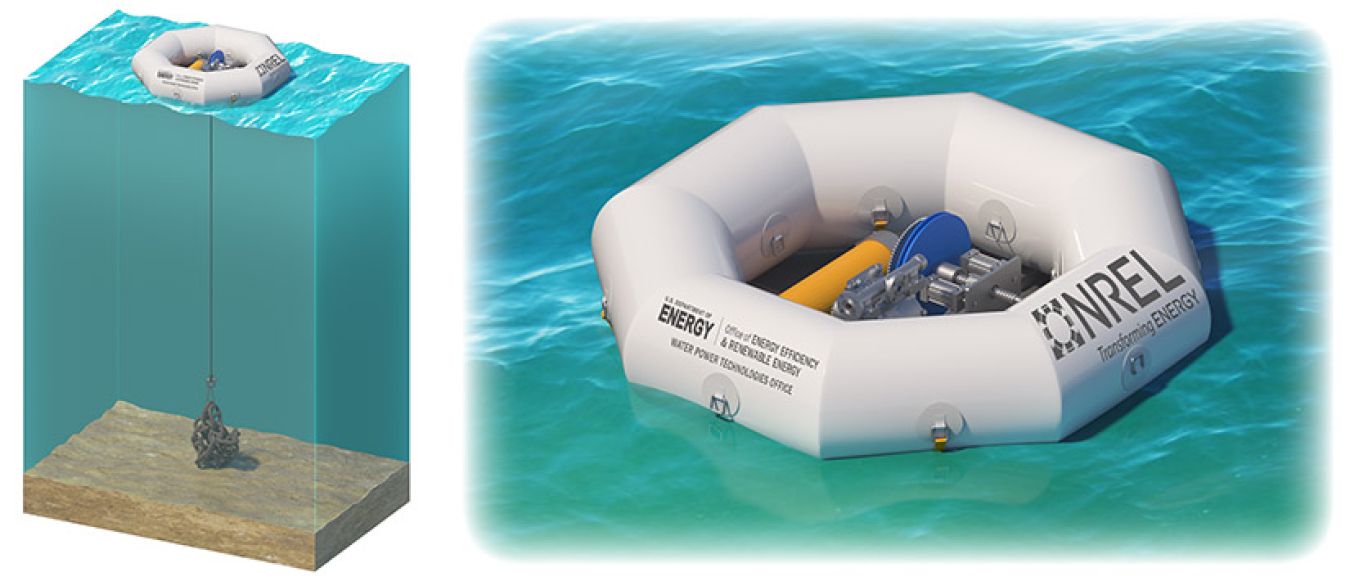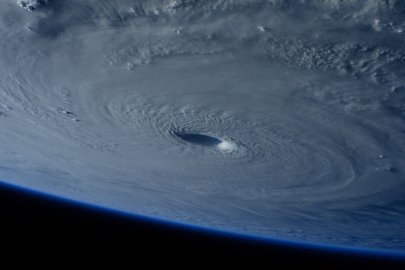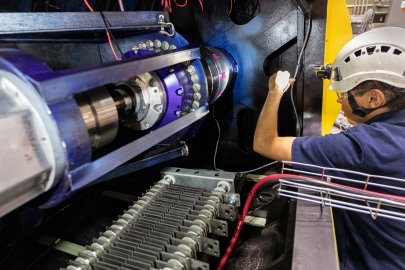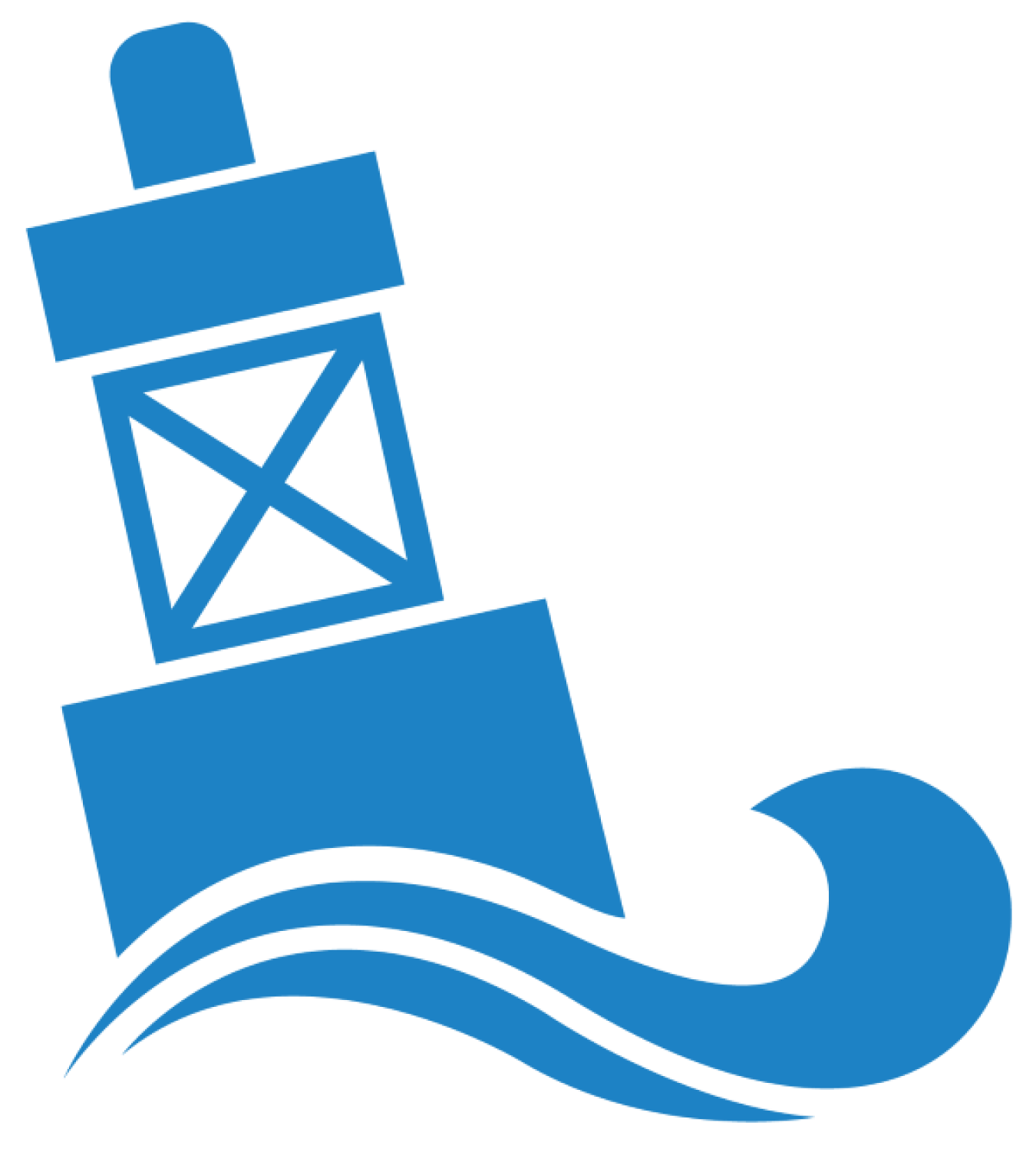Competitors presented, tested, and evaluated small, modular, cost-competitive desalination systems powered by ocean waves through two rounds of the Waves to Water prize and five concepts earned a chance to compete in the final test in the open water.
Water Power Technologies Office
March 9, 2022Marine Energy Program
Powering the Blue Economy Initiative
Project Name: Waves to Water Prize
Project Team: National Renewable Energy Laboratory (lead) and Coastal Studies Institute
Final Test Location: Nags Head, North Carolina

Wave-powered desalination technologies have the potential to turn the ocean’s salt water into drinking water using energy from the ocean itself. To accelerate the development of this budding new technology, the U.S. Department of Energy’s Water Power Technologies Office (WPTO) launched the five-stage, $3.3 million Waves to Water Prize in which teams compete to design small, modular desalination systems. Part of the Powering the Blue Economy initiative and administered by the National Renewable Energy Laboratory (NREL), this prize seeks to create sustainable water delivery systems to create clean drinking water in communities that need it the most. In 2021, WPTO and NREL advanced competitors through two stages and selected the remaining five finalists that will test their devices off the coast of North Carolina in 2022.
Through the Waves to Water Prize, WPTO seeks to accelerate the development of wave energy-powered desalination systems and encourage creative, interdisciplinary solutions. The prize pairs world-class researchers with an entrepreneurial support system—including partners such as Engineering for Change and Coastal Studies Institute, and sponsors such as the International Desalination Association and Janicki Industries—to prime competitors for private investment and commercial scale-up.

National Renewable Energy Laboratory researchers designed a wave-powered desalination device that can be configured to produce electricity or direct hydraulic conversion to ensure similar devices competing in the final stage of the Waves to Water Prize can be evaluated fairly. Photo courtesy of National Renewable Energy Laboratory
In 2021, the prize successfully completed two full stages: ADAPT and CREATE. The ADAPT Stage welcomed new and continuing competitors and 36 teams participated, including rising entrepreneurs from small businesses, industry, academia, and the U.S. military. During this stage, teams had 180 days to document a detailed and robust design tailored to the environment at Jennette’s Pier in Nags Head, North Carolina, where the final systems will be tested in the ocean. The 10 winning teams from the ADAPT Stage split a prize pool of $800,000 and went on to compete in the CREATE Stage.
Between February and August 2021, these 10 remaining teams developed their desalination ideas further and used a combination of comprehensive engineering analysis, design drawings and documentation, and videos highlighting device performance to provide evidence they could build and deliver their technology. In August 2021, WPTO awarded five CREATE Stage winners $100,000 each to bring their ideas from concept to prototype.
The finalist five teams are currently building and preparing fully functional wave-powered desalination devices for the prize’s final stage, the DRINK Stage. The DRINK Stage will include a final test event off the coast of North Carolina in 2022, organized in partnership with the Coastal Studies Institute.
Powering the Blue Economy Initiative Projects
-
 Seven Ocean Observing Prize competitors were selected for their novel approaches to marine energy-powered systems that seek to enable better prediction of hurricane intensity, which marks the winners’ first step in a three-stage contest.
Seven Ocean Observing Prize competitors were selected for their novel approaches to marine energy-powered systems that seek to enable better prediction of hurricane intensity, which marks the winners’ first step in a three-stage contest. -
 After customer discovery and analysis stemming from the Powering the Blue Economy report, a national lab team focuses on 10 key research areas that are fundamental challenges for marine energy to integrate into high-priority blue economy applications.
After customer discovery and analysis stemming from the Powering the Blue Economy report, a national lab team focuses on 10 key research areas that are fundamental challenges for marine energy to integrate into high-priority blue economy applications. -
 The Energy Transitions Initiative Partnership Project launched a novel approach to support and work alongside 11 remote, island, and islanded communities to help develop strategies to shift to a clean, equitable, sustainable, and resilient energy future.
The Energy Transitions Initiative Partnership Project launched a novel approach to support and work alongside 11 remote, island, and islanded communities to help develop strategies to shift to a clean, equitable, sustainable, and resilient energy future.
WPTO's Marine Energy e-newsletter shares news and updates on tools, analysis, and emerging technologies to advance marine energy.
The WPTO e-newsletter brings funding opportunities, events, publications, hydropower, and marine energy updates directly to your inbox.


